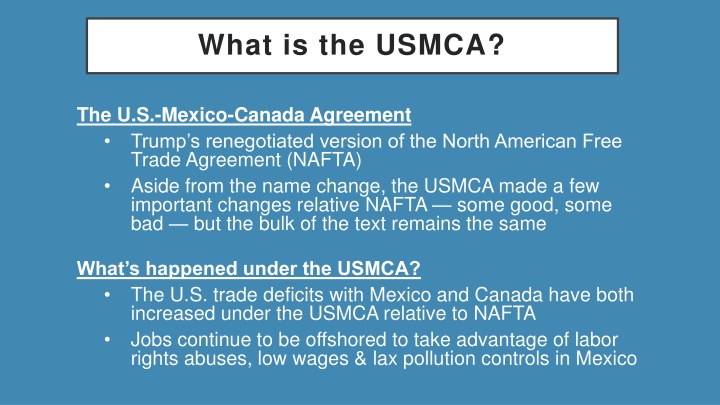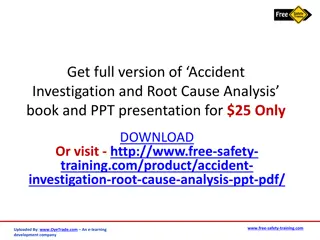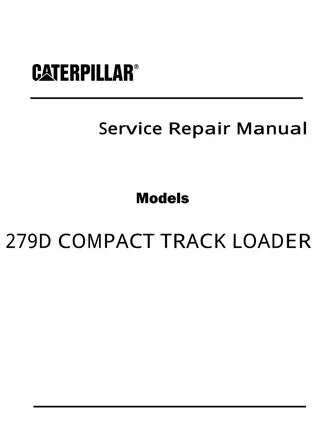
Understanding USMCA: Review, Changes, and Goals
Explore the USMCA, a renegotiated version of NAFTA, with changes in trade deficits, job offshoring, reviews, and goals for securing benefits for people, farmers, and the environment.
Download Presentation

Please find below an Image/Link to download the presentation.
The content on the website is provided AS IS for your information and personal use only. It may not be sold, licensed, or shared on other websites without obtaining consent from the author. If you encounter any issues during the download, it is possible that the publisher has removed the file from their server.
You are allowed to download the files provided on this website for personal or commercial use, subject to the condition that they are used lawfully. All files are the property of their respective owners.
The content on the website is provided AS IS for your information and personal use only. It may not be sold, licensed, or shared on other websites without obtaining consent from the author.
E N D
Presentation Transcript
What is the USMCA? The U.S.-Mexico-Canada Agreement Trump s renegotiated version of the North American Free Trade Agreement (NAFTA) Aside from the name change, the USMCA made a few important changes relative NAFTA some good, some bad but the bulk of the text remains the same What s happened under the USMCA? The U.S. trade deficits with Mexico and Canada have both increased under the USMCA relative to NAFTA Jobs continue to be offshored to take advantage of labor rights abuses, low wages & lax pollution controls in Mexico
USMCA Review Overview The USMCA contains mandatory review provisions requiring the countries to meet after the agreement has been in effect for six years to: (1) consider amendments to the pact (2) decide whether to extend the pact for an additional 16 years Refusal to extend the USMCA at that time doesn t end the pact. Instead, it accelerates the review process onto an annual basis rather than an every-six-years basis.
USMCA Review Timeline (working backward) July 1, 2026 Trade Ministers Deadline to Conduct Joint Review of USMCA Deadline for Countries to Submit Proposed USMCA Amendments Deadline for USTR to Notify Congress of Intended Amendments &Renewal Plan Deadline for USTR to Publish Details about Public Comment Period in the Federal Register USMCA Labor Council & Environment Committee Begin Their Chapter-Specific Reviews June 1, 2026 Jan. 2, 2026 Oct. 4, 2025 July 1, 2025
USMCA Review Goal Secure major changes to the USMCA so that it actually benefits working people, family farmers & the environment or get out of the pact altogether! During this process, we also want to build cross-sector consensus and support behind just-and-sustainable trade policy priorities
End the Offshoring of Jobs Under the USMCA, companies continue to offshore good-paying jobs to Mexico to take advantage of weak labor rights, low wages & lax pollution controls. To counter offshoring, the USMCA renegotiation must Strengthen labor & environmental standards and facility-specific enforcement mechanisms Devote more resources to enforcement Strengthen Rules of Origin and other provisions to avoid circumvention of labor and environmental standards Remove bans on Buy American and Buy Local government purchasing preferences
Raise Wages The USMCA has failed to raise wages in the U.S., Canada or Mexico. To raise wages, the USMCA renegotiation must Establish minimum wages in key industries in order for goods to qualify for duty-free access Be premised on and build towards the concept of equal pay for equal work Establish wage transparency requirements throughout the supply chain
Strengthen Rural Communities While the prices consumers pay at the supermarket are higher than ever, the prices farmers receive for crops are often below their costs of production. To benefit rural communities, the USMCA renegotiation must Safeguard governments rights to manage agricultural supplies at fair prices that cover costs of productions Safeguard governments rights to counteract agricultural dumping Establish mandatory Country of Origin Labelling for beef, pork, dairy, eggs and seafood products
Address Roots Causes of Migration The USMCA has failed to address the agricultural dumping and other NAFTA practices that have forced millions of Mexicans off their land and into migration. To address root causes of migration, the USMCA renegotiation must End agricultural dumping and help set fair price floors for crops Better protect migrant workers through strengthened labor provisions Add mandatory climate provisions Reject political rhetoric that dehumanizes immigrants
Remove Corporate Giveaways The USMCA remains full of provisions that benefit big corporations at the expense of working families. To remove corporate giveaways, the USMCA renegotiation must Eliminate special rights for foreign investors, including by fully eliminating Investor-State Dispute Settlement (ISDS) and more Eliminate Digital Trade rules that help Big Tech undermine personal privacy, data security, AI accountability & anti-monopoly policies Eliminate TRIPs-plus provisions that increase the price of medicines
How You Can Help We need to popularize these and other demands among our organizations, within our communities and with our elected officials. Be on the look out for Organizational sign-on letters Congressional sign-on letters Petitions Public comment periods Additional webinars and educational tools






















